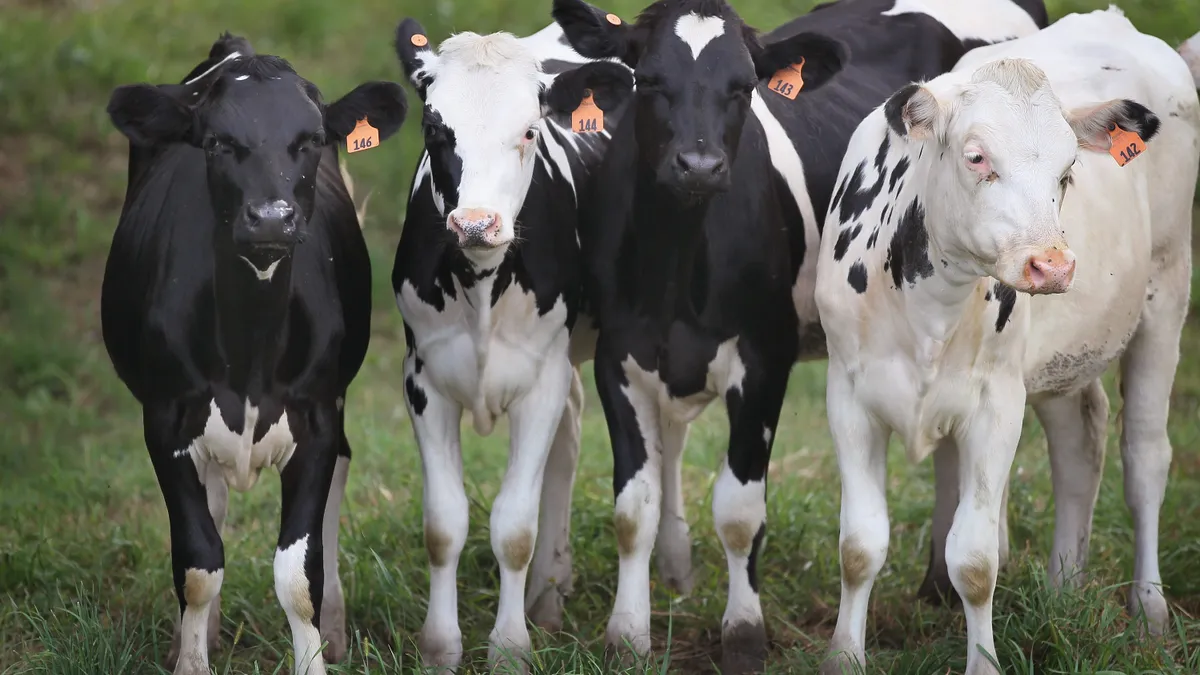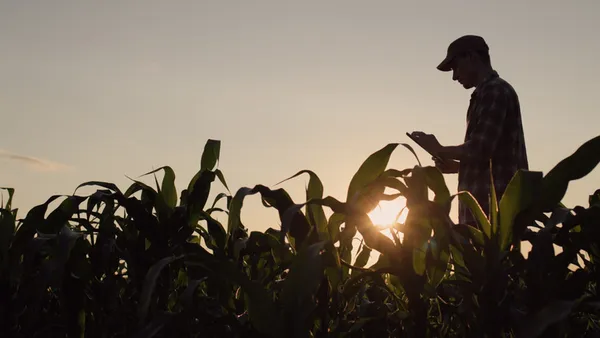Dive Brief:
- Organic Valley said Wednesday it is doubling the size of a project that encourages dairy farmers to reduce emissions in part through a transition to new grazing practices.
- The co-op received funding from yogurt makers Stonyfield and Nancy’s Probiotic Foods to expand the initiative, known as the Organic Valley Carbon Insetting Program. It also secured a Climate-Smart Commodities grant from the U.S. Department of Agriculture and has support from 15 technical partners.
- Organic Valley’s inset program, announced last March, pays dairies that sequester carbon through agroforestry practices such as planting new trees on grazing land. The project also focuses on methane reduction opportunities in feed and manure management.
Dive Insight:
As Organic Valley shoots for carbon neutrality by 2050, the co-op is committed to reaching that goal without the use of carbon offsets.
While carbon offsets involve companies paying for emissions reductions outside of their supply chain, inset programs involve businesses directly addressing their role in climate change.
Organic Valley’s inset program pays farmers for each ton of carbon they avoid emitting into the atmosphere, and the co-op then gets an “inset" which it can sell, share or keep.
“The Carbon Insetting Program is not just about adapting to climate change; it’s about leading the way for the rest of the industry and showing that dairy can be part of the solution,” Nicole Rakobitsch, director of sustainability at Organic Valley, said in a statement.
Over the next five years, Organic Valley aims to work with about 500 farm members to implement more than 1,200 climate-smart agricultural practices, according to the co-op’s 2023 impact report.
Organic Valley said it emits 25% less emissions than other dairies on average, in part through its sustainability practices and due to the fact that its member farms have smaller herds. A life-cycle assessment by the University of Wisconsin-Madison confirmed that Organic Valley’s carbon sequestration efforts reduced emissions by 15% on average.
The organic co-op received a grant of up to $25 million from the USDA, part of the agency's $3.1 billion initiative to advance climate smart practices in agriculture. Organic Valley was among the first recipients of the agency's grant program.
“With the support of our partners and the USDA, we’re bringing groundbreaking innovation to our organic farming model that has already proven to be successful in reducing our carbon footprint,” Rakobitsch said.











